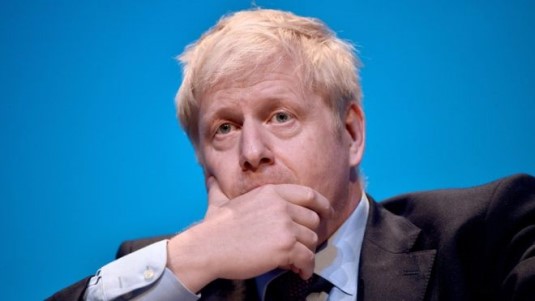The EU's Counter-Brinkmanship

One faded luminary of the remain movement has offered hope that messy street politics won't be necessary. Speaking at a seminar in Edinburgh on Thursday, Gordon Brown waved around his great clunking fist and suggested the EU will unilaterally withdraw the 31st October deadline at some point "next week". According to him, he's "had talks" with EU leaders, which has provided grounds for this belief. This does not amount to extending Article 50 as this would require the UK's consent as well, but makes it very clear the EU is the one showing flexibility and it's Boris Johnson who's being rigid.
Not a get out of Brexit free card then but, if true, smart politics on the EU's part that makes the government's life more difficult. Unlike most centre right parties across the EU, who tend to be general committees for the common affairs of their respective capitals, the Tories have always been a sectional party of finance, landed capital, spivs and speculators, and food and drink production first and foremost. In more recent years, thanks to the collapse of the Tories during the John Major administration (now rehabilitated as a hero in the anti-Johnson pantheon), Tony Blair's lasting legacy was not just breaking sections of capital and the petit bourgeoisie from auto-Toryism, but accomplishing this among finance capital too. Blair and Brown's programme of handing public service provision to markets and business, encouragement of the property bubble, and light touch regulation did bring in the tax revenues for their social programmes, but for a time ensured most of the City was politically onside. After Brown saved their hides from the stock market crash and credit crunch, they showed their gratitude by falling in behind Dave's shiny new liberal Tories. Finance benefited handsomely from his Thatcherism redux, and stuck with the Tories for the 2015 election, but the referendum again prised open the divisions among finance capital. Most went remain and showered the campaign with cash and personnel, while those with interests outside of the EU, or stood to gain from the fire sale of assets a disastrous no deal Brexit would entail advocated leave and have stuck with the Tories. Finance capital is not univocal in its immediate interests, and most of it is arrayed against the Prime Minister and his reckless project.
While few in the upper echelons of the EU would see things so starkly, it would appear they share the increasingly commonsensical view that the Tory party presently constituted is a vector of instability whose narrow-mindedness and extreme short-termism is a threat to the EU project itself. Any hint of unfair treatment or an impression of doing the UK over, as per the recent cases of Italy and especially Greece, is grist to the mill of the right wing populism eating away at the EU's legitimacy. Therefore, while most EU governments are on the right and are as committed to neoliberal fundamentalism as Johnson, they're not about to do him nor the most backward sections of British capital he represents a favour when it's going to cost them.
And this puts the onus back on to the Prime Minister. We're leaving on 31st October, do or die, but what was the EU's deadline becomes his deadline. We've been told time after time EU negotiations have the tendency to go down to the wire with deals struck at the last possible moment. And, um, they do. Without the Hallowe'en date written in stone, Johnson owns it. To be sure it won't make any difference to his strategy, because no Brexit = no Tory party, but at the next election he and his ilk cannot blame anyone else for the coming calamity.
The question then is will the EU do it? They definitely should. Having Cummings in Number 10 doing his predictably "unpredictable" thing encourages others to make bold moves as well. If Brown's belief is correct and the EU cancel the deadline, it's hard to see how Johnson and friends are going to scramble to mitigate the damage.
Image Credit
Comments
Post a Comment